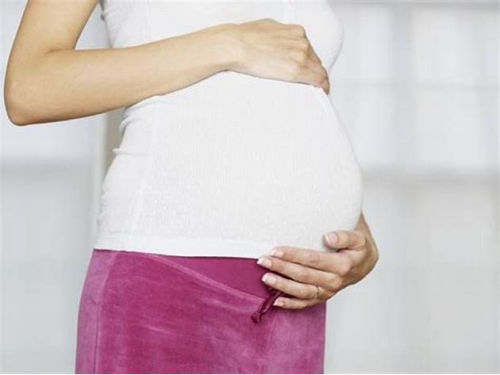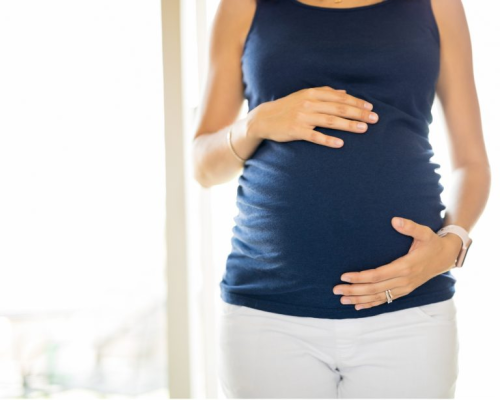
Ovarian Insufficiency and Infertility: A Fertility Specialist’s Personal Insight
As a fertility specialist, I often find that the most difficult conversations are those surrounding ovarian insufficiency or ovarian failure. For many women, hearing that their ovaries aren’t functioning as they should can feel like a cruel blow, especially if they’ve been struggling with infertility for a while. These diagnoses can leave women wondering, How did I get here? What does this mean for my future? Is there still hope?
Let me tell you, I’ve been there with my patients—walking through the uncertainty and fear that accompanies ovarian insufficiency. It’s not easy. But it’s important to know: there is still hope.

What is Ovarian Insufficiency?
To put it simply, ovarian insufficiency (also known as premature ovarian failure) occurs when a woman’s ovaries stop working properly before the age of 40. This can lead to a lack of egg production, irregular or absent periods, and difficulty getting pregnant. The term “insufficiency” can be confusing, because some women with ovarian insufficiency may still have occasional menstrual cycles and even the possibility of pregnancy—but the chances are significantly lower than in women with normal ovarian function.
I’ve had patients come to me in tears, not understanding how their ovaries could stop working, especially when they were in their early thirties and feeling healthy in every other way. A patient named Emily, for example, was 34 when she first saw me. She’d been trying to conceive for over a year, and after a battery of tests, we confirmed that her ovarian reserve was alarmingly low.
Dr. Patricia Williams, a leading expert in reproductive endocrinology, once told me, “Ovarian insufficiency isn’t the same for every woman. Some still have a few eggs left; others may not.” This is something I’ve seen time and time again in my practice. The diagnosis doesn’t necessarily mean the end of the road for fertility, but it does change the landscape.

What Causes Ovarian Insufficiency?
Ovarian insufficiency can occur for a variety of reasons, but the most common is genetics. For example, women with certain genetic disorders like Turner syndrome or Fragile X syndrome may be at higher risk. Other factors that can lead to ovarian failure include chemotherapy or radiation therapy, autoimmune disorders, and surgical removal of the ovaries.
In Emily’s case, we didn’t find a clear cause. It was just one of those things—sometimes ovarian insufficiency develops for no obvious reason. That’s one of the hardest parts of this condition: it often feels like the body is acting on its own, without any explanation.
Sometimes, ovarian insufficiency can be the result of a long-standing autoimmune issue, where the body’s immune system mistakenly attacks the ovaries. Women who have conditions like lupus or rheumatoid arthritis may experience early menopause due to this process. In other cases, lifestyle factors like smoking or severe stress may also contribute to ovarian aging.

What Can Be Done to Overcome Ovarian Insufficiency?
When faced with a diagnosis of ovarian insufficiency, many women feel like they’ve reached an insurmountable obstacle. But I always remind them that medicine has come a long way, and there are options available.
Egg Donation: One of the most common routes for women with ovarian insufficiency who want to have children is egg donation. This can be a life-changing decision for many women, as it allows them to carry a pregnancy using eggs from a donor. I’ve seen many patients go through this process and have successful pregnancies. Although the process can be emotionally challenging, it is often a viable solution for women with very low or no ovarian reserve.
Hormone Replacement Therapy (HRT): For some women, hormone therapy is an important part of managing ovarian insufficiency. Estrogen and progesterone can help maintain normal menstrual cycles, protect bone health, and manage other menopausal symptoms like hot flashes or mood swings. However, HRT alone won’t restore fertility, but it can help women feel more like themselves and improve their overall health.
In Vitro Fertilization (IVF) with Own Eggs: For women like Emily, who still have some egg reserve left, IVF may be an option. The success of IVF for women with ovarian insufficiency depends on the quality and number of eggs remaining. In Emily’s case, after several rounds of stimulation, we were able to retrieve a small number of eggs, but unfortunately, none of them were viable for fertilization. This can be disheartening, but we continued to support her through the process, and ultimately, we moved to egg donation.
The Emotional Side of Ovarian Insufficiency
One of the things I’ve learned from my patients is how deeply emotional a diagnosis of ovarian insufficiency can be. It’s not just about the physical challenges; it’s the emotional and mental strain of realizing that your body is no longer following the typical reproductive timeline.
For Emily, it wasn’t just about her fertility—it was about her self-image and sense of identity. Like many women, she had always imagined that one day she’d become a mother. When she learned that she would need an egg donor, it was a blow to her sense of self, and we spent a lot of time talking about how she felt about her future, her body, and the way she viewed motherhood.
In these conversations, I always remind my patients that motherhood doesn’t have to be defined by biology. One of the most profound things Dr. Lisa Monroe once said to me was, “Egg donation doesn’t take away your motherhood. It gives you the opportunity to create a family in a different way.”
This perspective has helped countless women come to terms with their fertility challenges. It’s not always about the genetic connection—it’s about the love, care, and commitment you bring to the child you choose to bring into your life.
A Word on Hope
Despite how it may feel, ovarian insufficiency doesn’t have to mean the end of your dreams of parenthood. I’ve seen women with low ovarian reserves or early menopause go on to have children, whether through egg donation, IVF, or even adoption. Every path is different, and it’s important to explore all your options and make the choice that feels right for you.
In Emily’s case, after several years of trying IVF with her own eggs, she eventually decided to pursue egg donation. And after her first round, she was pregnant. Holding that baby in her arms—her biological child, yes, but in a way, also her child by heart—was a moment that still brings tears to my eyes when I think about it.
The road to parenthood may be longer or more complicated for women with ovarian insufficiency, but with the right support, information, and care, it’s still possible.



